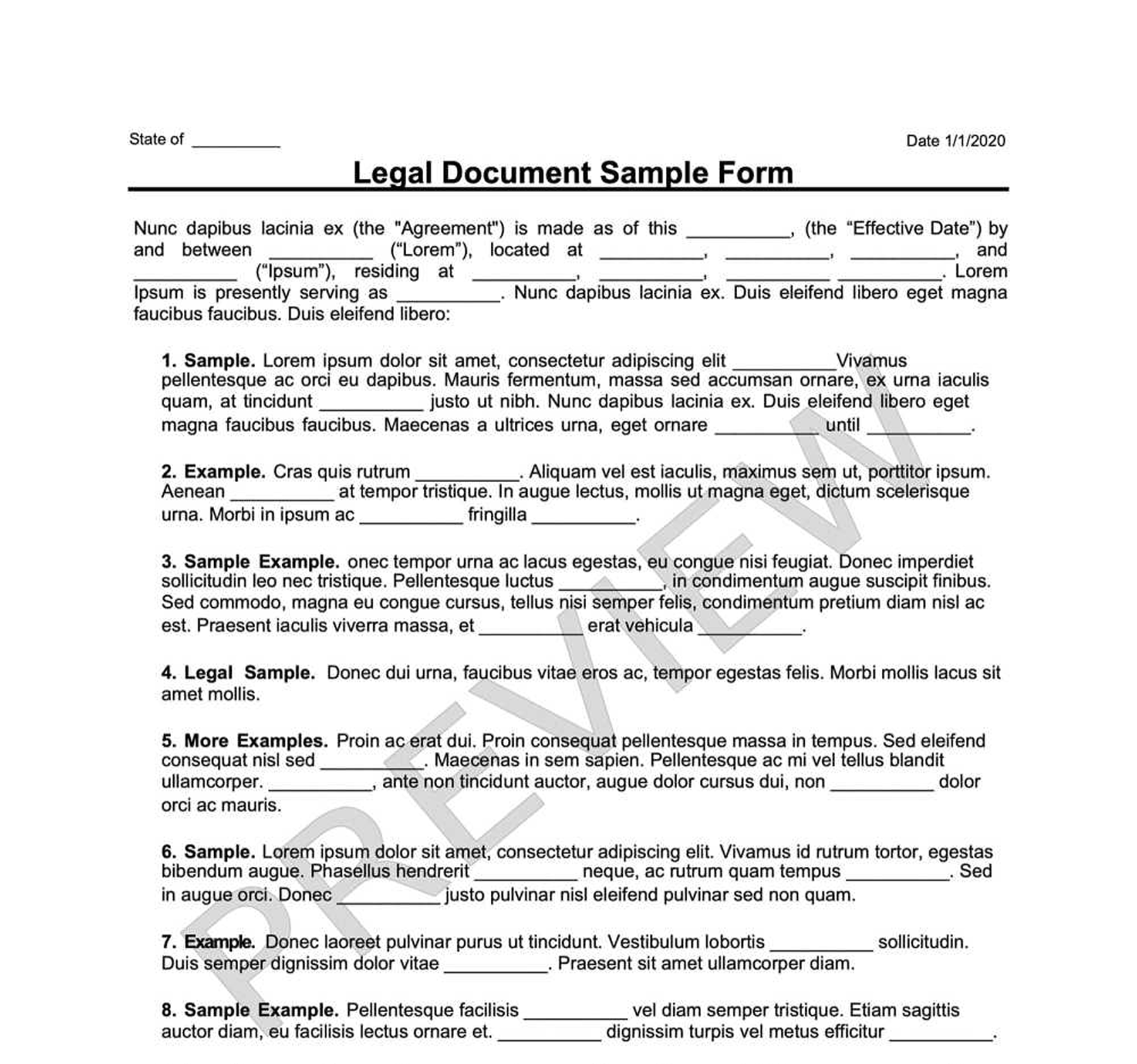Outsourced Services Agreement
An Outsourced Services Agreement is used when a company wants to hire a service provider located outside of the US.

How it Works
Build your selected document.
Answer a few simple questions with step-by-step instructions.
Print & download forms instantly. Sign & make it legal.
What Is a Outsourced Services Agreement?
Many businesses choose to hire independent contractors for their services rather than hire full-time employees. This is especially the case if they need one-time help with a project or occasionally need outside help.
Services agreements are standard in the world of independent contractors and freelancers. However, if the independent contractor, who can be an individual or a company, is located outside of the US, you need an Outsourced Services Agreement.
What Is an Outsourced Services Agreement?
There are several reasons some businesses decide to outsource projects to the workforce of other countries. For one, a company might need a particular service that only a company or person without the US can perform. Or, more commonly, foreign services provided can be less expensive, perhaps significantly so. The Outsourced Services Agreement is especially beneficial to smaller companies without many employees and can't afford US-based independent contractors.
Other Names for Outsourced Services Agreement
Depending on your state, an Outsourced Services Agreement may also be known as:
- Outsourcing Services Contract
- Outsourced Independent Contractor Agreement
- Outsourced Consulting Agreement
Who Needs an Outsourced Services Agreement?
Any company may choose to outsource some of its work or projects. Whether it happens only once or regularly, the company will need an Outsourced Services Agreement to ensure everything is carried out according to the law.
Why Use Swyft Forms for Your Outsourced Services Agreement
Customized for you, by you
Create your own documents by answering our easy-to-understand questionnaires to get exactly what you need out of your Outsourced Services Agreement.
Specific to Your Jurisdiction
Laws vary by location. Each document on Swyft Forms is customized for your state.
How to Create an Outsourced Services Agreement with Swyft Forms
All service agreements should contain essential provisions protecting both the client and the service provider. If you are not sure where to start, it is probably best to use a template to guide you through the process.
Let Swyft Forms help with our extensive library of attorney-vetted legal forms. The process is fast and easy. All you have to do is fill out our easy-to-understand questionnaire. Once complete, simply download your form as a PDF or Word document from your secure online account.
What Information Will I Need to Create My Outsourced Services Agreement?
To create your document, please provide:
- Client Information: The legal name of the hiring company or client and the contact information.
- Service Provider Information: The legal name of the service provider and the contact information.
- Governing Law: Specify the legal system taking precedence in the event of a dispute.
- The Effective Date: The date when the agreement goes into effect.
- Services: A full description of the services ordered.
- Payment Information: The pay rate, payment schedule, and other applicable info.
- Penalties: Describe the consequences of late payments or non-performance.
- Additional Clauses: Non-disclosure and supplementary provisions.
- Signatures: Both parties must sign the document.
Outsourced Services Agreement Terms
- Invoice: A statement of transactions between the client and the service provider.
- Assignment: A provision allowing the service provider or the client to transfer the contract to another party.
- Binding Effect: The quality of the contract remains valid even if the service provider changes.
- Severability: The quality of a document, such as an agreement or a lawmakers' bill, being proper even when some parts or provisions are struck out (valid without the offending details or requirements).
- Waiver: The surrender of specific rights in writing.
- Warranties: In the context of an Outsourced Services Agreement, these are the service provider's guarantees to possess all licenses and documentation necessary to fulfill their work.
- Force Majeure: In the event of unforeseeable circumstances, either party will not be liable for non-performance.
Outsourced Services Agreement Signing Requirements
The client and the service provider must sign the document for it to be legally enforceable. Notarization of signature witnessing is not necessary but can make the form harder to contest.
What to Do with Your Outsourced Services Agreement
After signing, it is customary for both parties to keep a physical copy of the document. Securing your copy of the Outsourced Services Agreement is essential if you have to prove or enforce the contract's provisions in the event of a dispute.
Other Names for Outsourced Services Agreement
- Outsourced Services Agreement Form
- Outsourced Services Agreement Document
- Outsourced Services Agreement Agreement
- Outsourced Services Agreement Contract
- Outsourced Services Agreement Template
- Outsourced Services Agreement Checklist
Who Needs a Outsourced Services Agreement?
Why Use Swyft Forms for Your Outsourced Services Agreement
Customized for you, by you
Specific to Your Jurisdiction
Why choose Swyft Forms?
Create professional documents for thousands of purposes.
Make unlimited documents and revisions.
Our documents are vetted by lawyers and are applicable to all 50 states.
